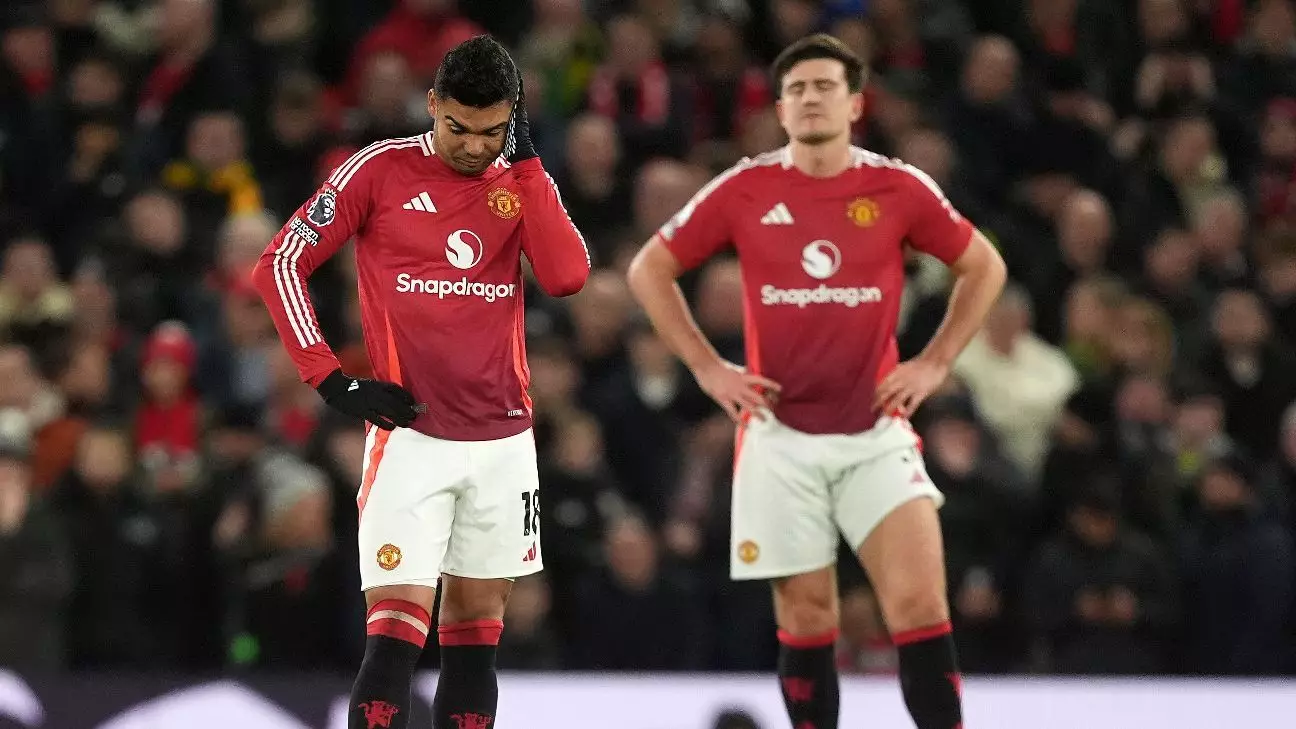The atmosphere at Manchester United has reached a boiling point, catalyzed by a disheartening loss to Newcastle United. The defeat not only marked the fourth consecutive one for the team but also signified the mounting discontent among supporters who have witnessed a rapid decline in performance. Fans filled Old Trafford on that fateful Monday night, only to see the team serve up a woeful first half. A decision that went viral among the fanbase was the early substitution of Joshua Zirkzee, which incited cheers from the crowd, emphasizing the players’ subpar performance rather than any individual failings. This incident, along with the team’s overall display, left a bitter taste, hinting that the frustrations of the fanbase could soon morph into a larger confrontation.
The league standings paint a bleak picture for Manchester United. As of now, they sit perilously close to the relegation zone, marking a grim reality for a club historically celebrated as one of football’s giants. For the first time in decades, fans are confronted with the possibility of relegation—a concept previously unheard of in the context of Manchester United. The stark realization that they have lost three consecutive home league games for the first time in over 40 years summarizes the crisis at hand. Moreover, with only a handful of points separating them from the drop, Manchester United finds itself in uncharted territory, raising uncomfortable questions regarding responsibility and accountability.
Head coach Ruben Amorim’s position has swiftly become the crux of discussions around the club’s failures. Upon succeeding Erik ten Hag, Amorim initially brought a wave of optimism. Yet, with the disheartening series of defeats—including losses to teams like Arsenal and Nottingham Forest—his leadership is increasingly scrutinized. Fans have taken to chanting phrases like “You’re getting sacked in the morning,” demonstrating that discontent isn’t just limited to team performance; it extends to management. Amorim himself has expressed the weight of responsibility he feels as coach, acknowledging that the prevailing circumstances are, indeed, a reflection of organizational failure rather than solely his doing.
The coach’s comments on the need for critical improvements in training and player morale portray a leader aware of the pressing issues at hand. However, his reluctance to openly criticize his players raises questions about whether he is insistent on maintaining morale or simply avoiding accountability. Every match that ends unfavorably leaves the specter of doubt hanging over his tenure, where the expectation of a paradigm shift in performance is consistently unmet.
With the debate surrounding Amorim’s tactical approach, particularly his utilization of the 3-4-3 formation, various aspects of gameplay have come under scrutiny. Fans and pundits alike have posited that the system may not be conducive to the current squad’s strengths, yet the fundamental issues appear to transcend mere tactical setups. Defensive lapses, such as allowing Alexander Isak a free header and failing to assert dominance during set pieces, speak volumes about the players’ collective mentality and commitment. Criticism of Amorim’s formation doesn’t fully account for the failures evidenced in core defensive responsibilities—a reflection of deeper issues entrenched within the team.
These failures manifest not only as misplaced passes or ineffective tackles but also as a widespread absence of team cohesion. This disorganization indicates that, beyond tactical adjustments, a psychological refurbishment is essential for any revival to take place. Changes in formations alone will not revive the club’s fortunes if the mindset remains stagnant.
Looking to the future, it is essential to consider what must be done to rectify the current situation at Manchester United. Although Amorim is poised to pivot away from a month marred by defeats, it will require more than just tactical shifts to spark a revival. The club needs a return to the foundational principles of teamwork and resilience that characterized its most successful periods. Each player’s accountability in demonstrating commitment on the field must be reinstated, and the leadership team needs to foster an environment where growth and improvement are prioritized over complacency.
As Manchester United prepares for a daunting fixture against league leaders Liverpool, it is clear that the path to redemption will not present itself easily. The challenges are monumental, but within them lies a unique opportunity for regeneration. Fans await a turning point—a collective effort that not only sees their beloved club rise from its current plight but also re-establish its revered legacy on the footballing stage.

Leave a Reply